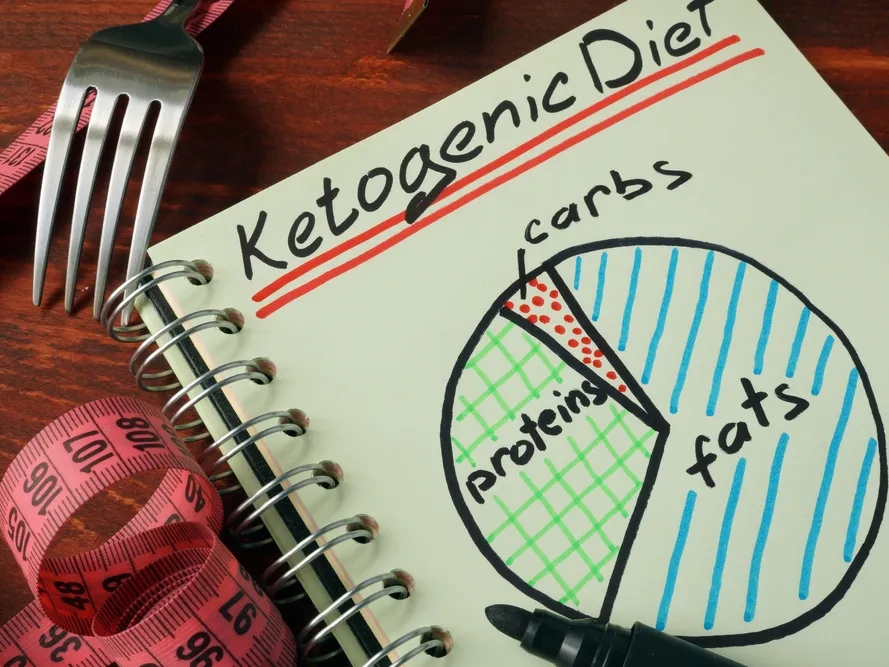What is the ketogenic (keto) diet?
There are several different types of the ketogenic diet with varying proportions of fat and carbohydrate. For this article, we will be referring to the standard/traditional ketogenic diet as this has been studied most extensively.
The traditional ketogenic diet follows a strict ratio for total grams of fat to combined grams of carbohydrate and protein. Typically, a keto diet has:
- Very high fat intake with 80-90% of total daily energy coming from fat
- Very low carbohydrate intake with 5-10% of total daily energy coming from carbohydrate
- Moderate intakes of protein.
The proportions of carbohydrate and fat in the keto diet vary widely from the suggested proportions for a healthy eating pattern where it is recommended to have 45–65% of total daily energy coming from carbohydrates, 20–35% of total daily energy coming from fats and 15–25% of total daily energy coming from proteins.
What foods are eaten in the ketogenic (keto) diet?
In the keto diet, most main meals are based around the following foods:
- Meat
- Fatty fish
- Dairy (cheese, creams and milk)
- Nuts and seeds
- Oils (i.e., olive oil)
- Avocado
- Eggs
What are the potential benefits of the ketogenic (keto) diet?
1. Short-term weight loss – research has found that in most cases Keto diets will help in weight loss by creating a kilojoule/ calorie deficit. But may not be the healthiest or be adhered to long-term.
2. Short term improvements in cardiovascular risk factors – A meta-analysis of five trials found Triglyceride levels and HDL (good) cholesterol levels changed more favorably in individuals assigned to low-carbohydrate diets after 6 months when compared to a low fat diet.
3. Epilepsy – there is strong evidence to show that the ketogenic diet can reduce seizures in epileptic children and adults
What are the downsides and risks of ketogenic (keto) diet?
There are quite a lot of adverse effects relating to the ketogenic diet which makes it very difficult to adhere to this diet in the long term. These include:
- Diarrhoea
- Constipation
- Vomiting
- Fatigue
- Sleep issues
- Kidney stones
- Electrolyte deficiencies
There are also nutritional concerns relating to the Ketogenic diet due to the low intakes of key recommended food groups such as fruits, vegetables, grains and legumes. As a result, people on this diet may miss out on vital vitamins and minerals that are important for health.
This diet is similar to:
A low carb, high fat diet. The key difference is that a strict ketogenic diet specifically aims to achieve elevated blood levels of ketone bodies which are chemicals produced as a consequence of your body burning fat. Hence, general low-carb diets are not as high in fat as the traditional ketogenic diets.
The bottom line:
There is evidence to show that a ketogenic diet can lead to short-term weight loss, improve cardiovascular risk factors and reduce seizures in epilepsy. However, the adverse side-effects make it very difficult to adhere to in the long term and it may not be healthiest due to low intakes of key foods such as fruit, vegetables, grains and legumes.
If you have a family history of bowel cancer DO NOT follow a ketogenic weight loss diet. The World Cancer Research Fund has shown convincing evidence for a higher risk of colorectal cancer in association with low fibre and higher red and processed meat intakes.
If you decide to follow the traditional ketogenic diet, only do so under supervision of your health care team.
To find out if your diet is healthy check out our Healthy Eating Quiz













